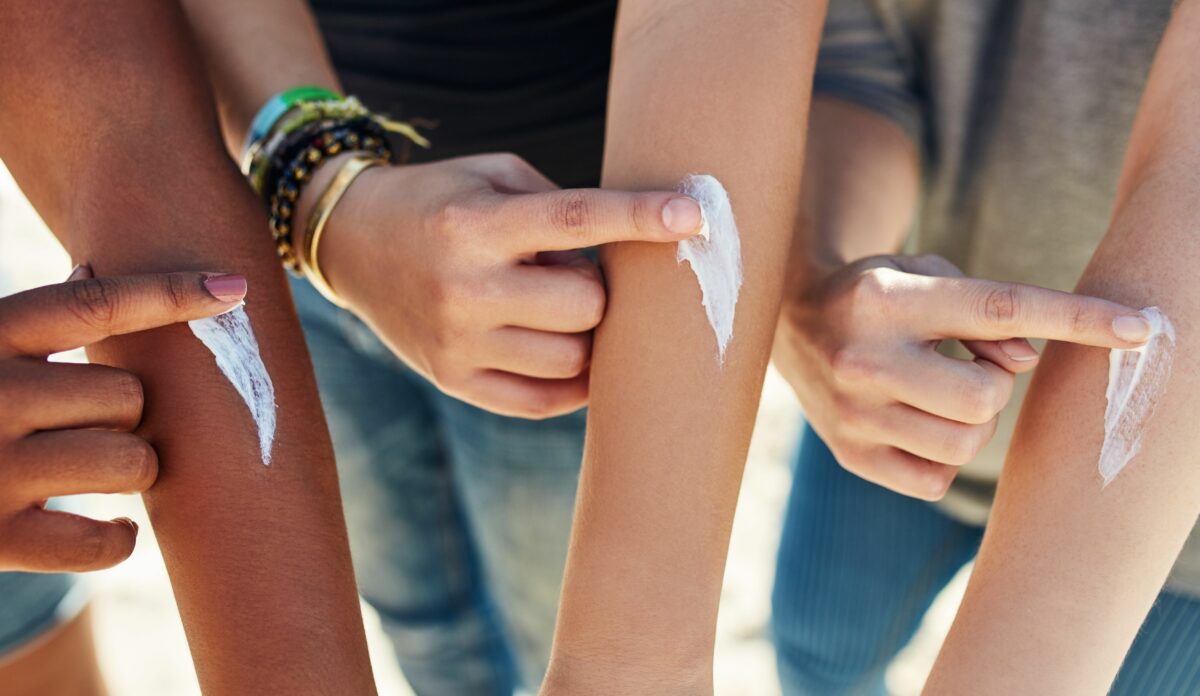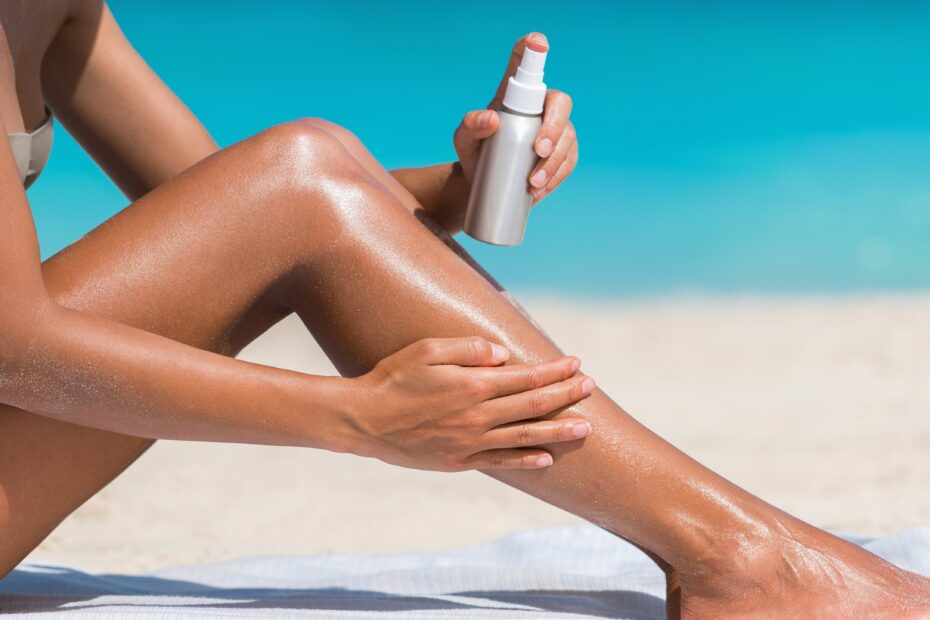There’s a common saying that ‘black don’t crack.’ This phrase, while catchy, supports a harmful myth: that black skin doesn’t need the same care as other skin types, especially when it comes to sun protection.
Today, we will debunk several myths associated with black skin and sunscreen care, underscore the importance of sun protection for all skin types, and provide practical advice for sunscreen use in melanin-rich skin care routines.
Myth 1: “Black skin doesn’t need sunscreen.”
Despite the common belief that melanin-rich, or black, skin is immune to sun damage, the reality is contrary. All skin types, including black, benefit from sunscreen protection. According to Dr. Hayes, UV rays can cause skin damage regardless of your skin color (Nebraska Med).
In fact, people with darker skin are more prone to hyperpigmentation and other forms of sun damage due to the increased melanin production triggered by UV rays. Therefore, it’s crucial to incorporate sunscreen into your daily skincare routine, regardless of your skin’s natural pigmentation.

Myth 2: “Sunscreen leaves a white cast on black skin.”
While certain sunscreen products may leave a white residue on the skin, numerous options are suitable for darker skin tones. Many modern formulations, particularly mineral sunscreens, are designed to absorb into the skin without leaving a visible cast. It’s all about finding the right skin type and tone product. Some brands even create specific sunscreen lines for people of color, recognizing the need for diversity in sun protection options. Read Also: 10 Winter Foods for Healthy and Glowing Dark Skin
Myth 3: “Black skin is inherently protected from the sun.”
It’s true that melanin provides some natural protection against UV radiation. However, this shouldn’t be mistaken for invincibility against sun damage. No skin color is 100% effective in blocking UV rays. Darker skin doesn’t rule out your risk for skin cancer, aging, or a host of other skin issues (source: Cancer Health). Everyone, regardless of skin color, needs to protect themselves from the sun’s harmful rays.
Myth 3: “The SPF in makeup is enough for sun protection.”
While it’s true that some makeup products contain SPF, relying solely on these products for sun protection is a common mistake. The product typically used during makeup application is often insufficient to provide adequate coverage. Applying sunscreen separately before applying other skincare or makeup products is best.
Myth 4: “Sunscreen breaks down melanin in black skin.”
This is another widespread myth that has no scientific backing. Sunscreen absorbs or reflects harmful UV rays, not altering melanin production. Melanin production is a natural process and isn’t affected by sunscreen use. In fact, protecting your skin from sun damage can help maintain even skin tone and prevent dark spots or hyperpigmentation.

Sunscreen is for everyone.
Sunscreen is not a beauty product; it’s a health necessity. Everyone, regardless of race or ethnicity, should incorporate sunscreen into their daily skincare routine. It protects against sunburns, premature aging, and skin cancer. Don’t let harmful myths and misconceptions prevent you from protecting your skin effectively. Consult with a dermatologist to find the right sunscreen for your unique needs and make it a non-negotiable step in your daily skincare regimen. Read Also: Winter Skincare Secrets for a Radiant Black Skin Glow
The Importance of Sunscreen Care for Black Skin
Sunscreen plays a crucial role in maintaining healthy skin. It provides a barrier against harmful UV rays, reducing the risk of sun damage, premature aging, and skin cancer. For individuals with black skin, using sunscreen can help preserve the skin’s health and vitality, preventing issues such as hyperpigmentation and melasma. It’s vital in any melanin-rich skincare routine and should not be overlooked or dismissed. By incorporating sunscreen into your daily regimen, you invest in the long-term health of your skin.

Practical Advice for Sunscreen Use on Black Skin
Choosing the right sunscreen for your skin type and tone is essential. Here are some practical tips for integrating sunscreen into your daily routine:
- Choose a broad-spectrum sunscreen: These products protect against UVA and UVB rays. Mineral-based sunscreens, with ingredients like zinc oxide or titanium dioxide, tend to be gentler on the skin and less likely to irritate.
- Use SPF 30 or higher: While no sunscreen can block all UV rays, an SPF 30 sunscreen blocks 97% of them.
- Apply generously and regularly: Use enough to cover all skin exposed to the sun and reapply every two hours immediately after swimming or sweating.
- Incorporate sunscreen into your makeup routine: Apply sunscreen before other skincare products.
- Use different types of sunscreen: Experiment with different formulations, such as lotion, spray, or stick, to find the best option for your skin type and personal preferences.
- Don’t forget about your lips: Use a lip balm with SPF to protect your lips from sun damage.
- Seek shade during peak hours: Limit your time in direct sunlight, especially between 10 am and 4 pm when the sun’s rays are strongest.
- Wear protective clothing: Opt for long-sleeved shirts, pants, and wide-brimmed hats to cover exposed skin.
- Don’t rely on sunscreen alone: Remember that sunscreen is just one part of a comprehensive sun protection routine. Seek shade, wear protective clothing, and limit your time in direct sunlight.
Remember, your skin is unique, so what works for one person might not work for another. It’s always best to consult a dermatologist or skin care professional to understand your skin needs.
Bottom Line
Sunscreen is not just for lighter skin tones; it’s essential for everyone, including individuals with black or darker skin. Protecting against harmful UV rays is crucial for maintaining healthy skin and preventing hyperpigmentation and skin cancer. By incorporating sunscreen into your daily routine, you invest in the long-term health of your skin.



